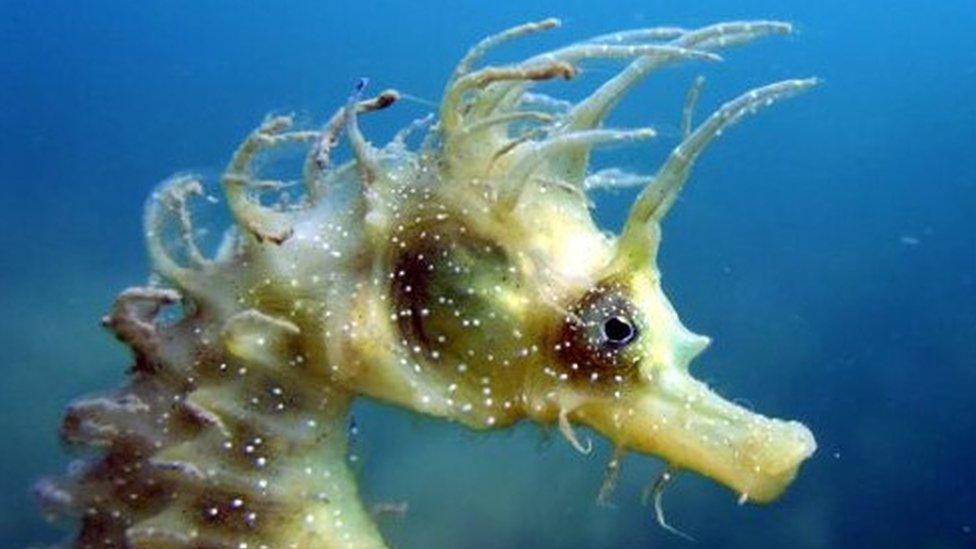Seahorses' return threatened by Dorset visitor influx
- Published
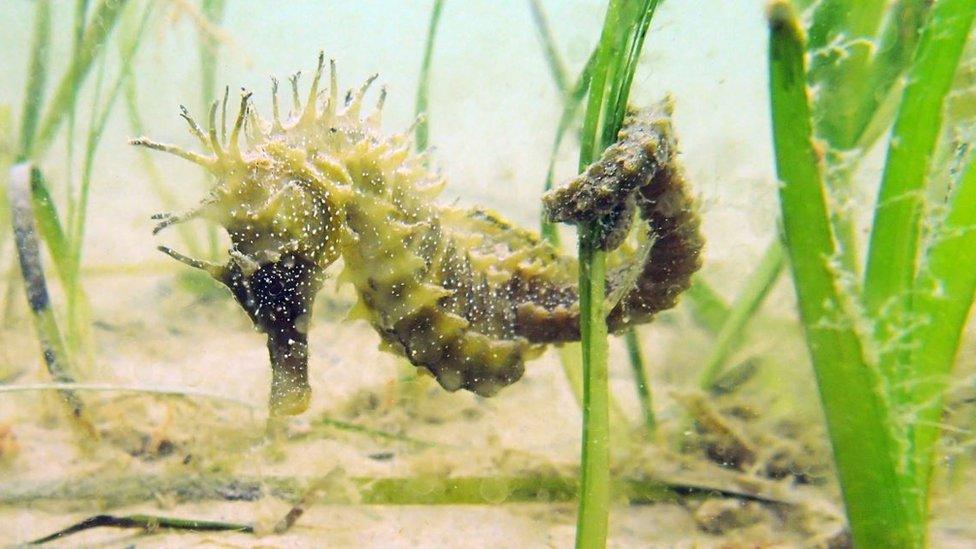
The UK's spiny (pictured) and short snouted seahorses have been protected by law since 2008
The recent influx of visitors to the Dorset coast has placed its protected seahorses at risk, conservationists have warned.
The Seahorse Trust said numbers had increased during the lockdown as crowds stayed away and a "remarkable" 46 were found in recent surveys off Studland.
However it said disturbance from boats and people looking for the creatures could lead to numbers "dwindling".
The creatures are protected and a licence is required to photograph them.
Neil Garrick-Maidment, the trust's founder, said the recent increase in seahorse numbers was a result of to less disturbance by people while lockdown restrictions prevented people from travelling to the coast.
"As horrific as Covid-19 is, it meant a lack of people and noise under water, the food chain is better and the sea grass can recover."
Prior to the recent survey, no seahorses had been seen in dives since 2018, when a dead one was found.
Dorset's coastal areas have experienced congestion, littering and anti-social behaviour as lockdown restrictions were eased over the past month.
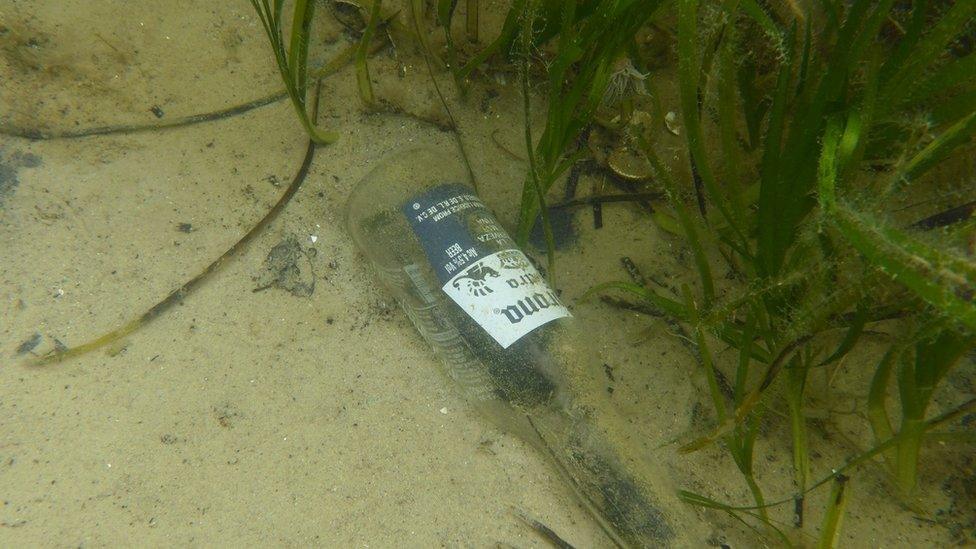
Plastic and glass pollution was found among the seahorses' sea grass habitat last month
Mr Garrick-Maidment said there were instances of people illegally diving to take photographs and inexperienced boat-owners dropping anchor in sensitive sea grass habitats.
He urged visitors to "give nature a chance".
"It will have an effect - suddenly with all the boats and people, the seahorses will vacate the site and we'll be back to numbers dwindling again.
"There has got to be action taken - we want to keep this impetus going to help these enigmatic and iconic creatures."
Both spiny and short snouted species species have been protected under the Wildlife and Countryside Act 1981 since 2008, which prevents them being killed, injured or taken. Studland Bay was designated as a Marine Conservation Zone (MCZ) last year.
The trust is calling for tougher enforcement measures against unlicensed divers.
Matt Heard, Natural England area manager, said: "We encourage all those visiting the Dorset coast to treat this beautiful area and its wildlife with the necessary care and respect.
"We continue to work with the Marine Management Organisation and local groups to ensure the Marine Conservation Zone and its special wildlife are well managed, conserved and protected."
Related topics
- Published2 June 2020
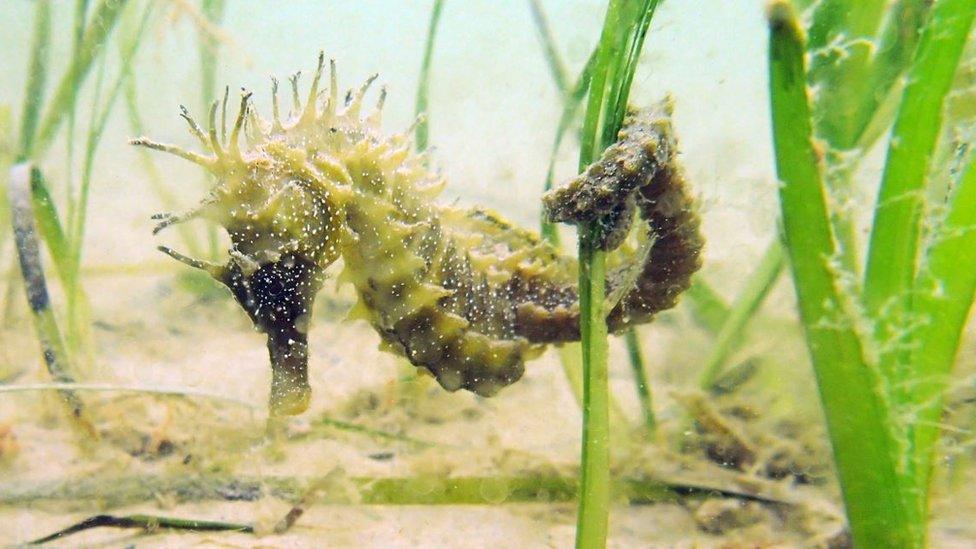
- Published18 April 2019
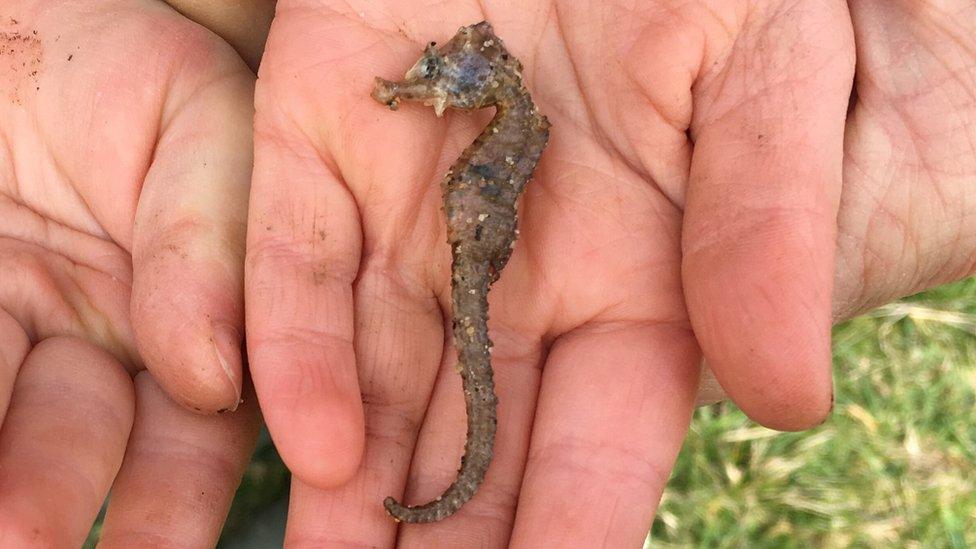
- Published25 May 2018
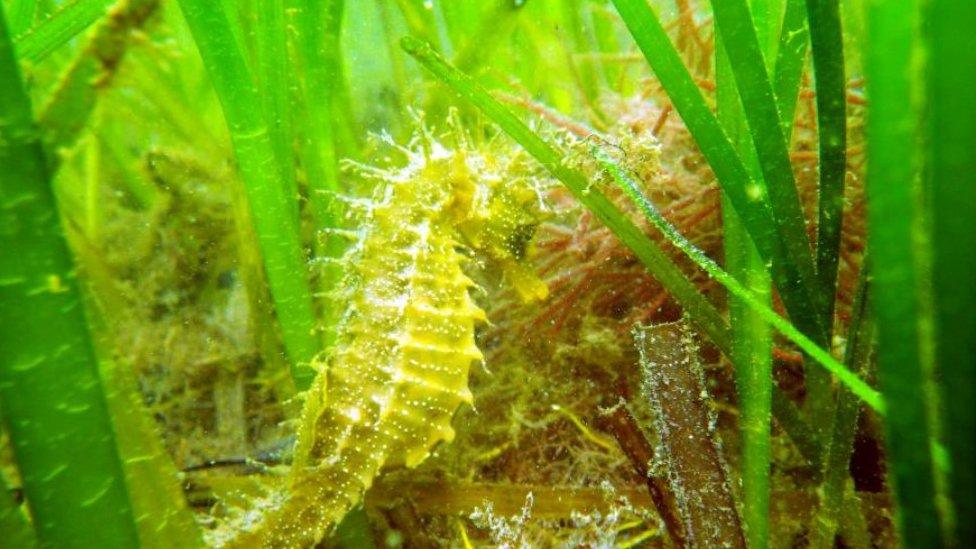
- Published16 February 2018
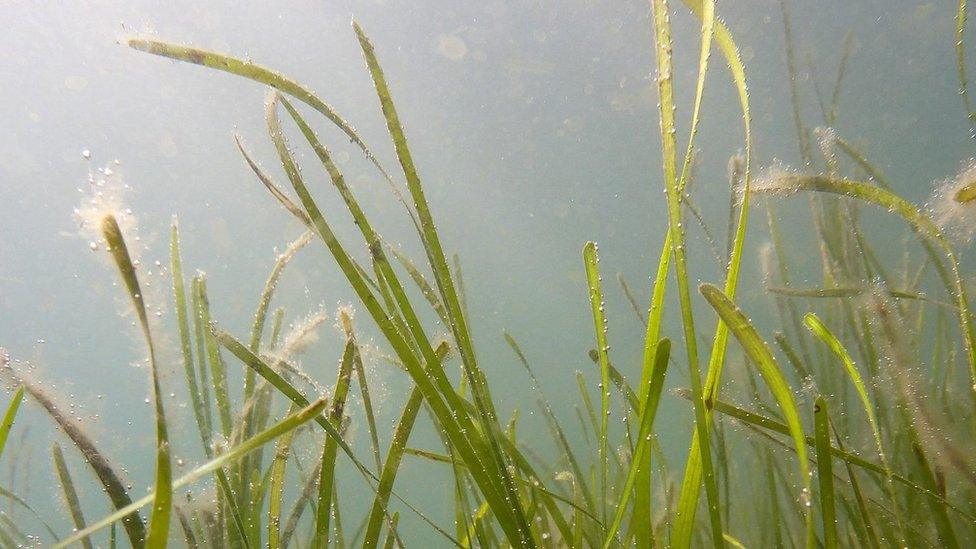
- Published3 October 2017

- Published21 October 2016
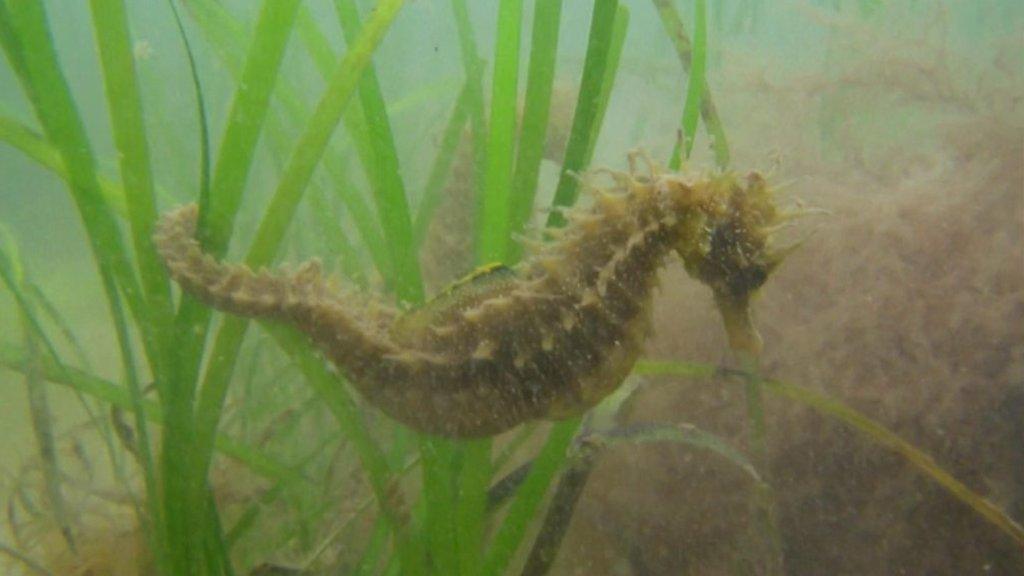
- Published11 April 2016
